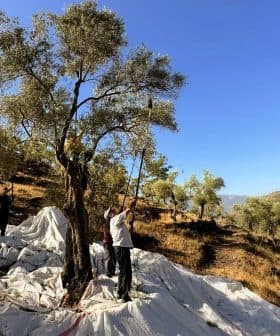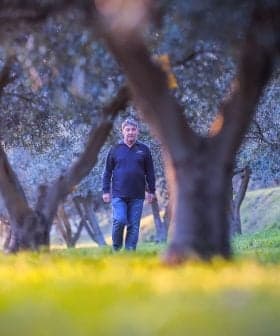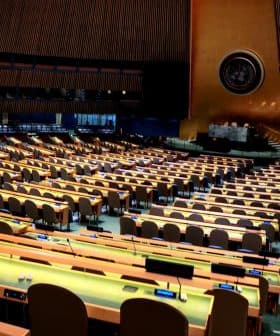Poorest Countries Seek Debt Relief, Citing Costs of Climate Change
Known as the Vulnerable Twenty Group, the 58 members asked richer nations to forgive their debt and invest in climate change mitigation efforts.
The V20 group, representing nearly 60 countries most vulnerable to climate change, is calling for restructuring global debt to address the $525 billion in damages they have suffered in the last two decades due to climate change. They are urging rich countries and creditors to provide $100 billion annually to help mitigate the impacts of the climate crisis on their nations.
The representatives of almost 60 countries of nations more vulnerable to the effects of climate change have warned that “losses” and “damages” caused by the warming planet far outweigh their debts to richer countries. Restructuring global debt, they said, is crucial to tackling the growing crisis.
Ahead of November’s COP27 United Nations climate change conference, they pointed out that their countries have suffered $525 billion in damages due to the effects of climate change in the last 20 years.
Climate change has already eliminated one-fifth of our wealth. In other words, V20 economies would be 20 percent wealthier today had we not been suffering the daily toll of climate loss and damage.
In a note published at the end of the last meeting of the Vulnerable Twenty Group, delegates asked rich countries and creditors to adhere to “the delivery of $100 billion a year” to the vulnerable countries.
V20 representatives said the funds are “commensurate with the emergency nature of the fallout of the global climate breakdown.”
See Also:Climate CoverageA large portion of the global population lives in countries that are the least responsible for global greenhouse gas emissions. However, many of these countries have also borne the brunt of the impacts of greenhouse gas emission-fueled climate change.
Founded in 2015, the V20 Group comprises 58 members, where approximately 1.5 billion people live. The countries produce only about 5 percent of global greenhouse gas emissions.
As a result, the V20 discussed the possibility of suspending the repayment of €435 billion in debt to richer countries. The V20 also asked the World Bank and International Monetary Fund to forgive at least half of their debt, using the funds to preserve nature instead. The World Bank alone accounts for 20 percent of the V20 countries’ national debts.
“As economic managers, it has long been clear to us that climate change is not a distant challenge,” said Ken Ofori-Atta, Ghana’s finance minister and current V20 chair, in the keynote address.
“It has set ablaze not only many of the world’s forests but also our fragile national budgets,” he added. “Climate change is simply compounding existing and increasingly acute fiscal stress.”
“The international financial architecture must become fit for climate and for our development ambitions, and it must support and not detract from transformational changes needed in the real economy toward our common prosperity,” Ofori-Atta continued.
David Theis, a spokesman for the World Bank Group, confirmed that the institution recognizes how many poor and small-island countries are coping with the severity of the climate crisis.
He added that banks are “committed to comprehensive debt solutions that bring real benefits to people in poor countries, particularly countries with high debt vulnerabilities that lack the financial resources to deal with the challenges they face.”
Mohamad Nasheed, former president of the Maldives, told the New York Times that repaying the massive debt would be an “injustice.”
“We are living not just on borrowed money but on borrowed time,” he said. “We are under threat, and we should collectively find a way out of it.”
The Maldives, which has already started to experience the impacts of sea level rise associated with melting polar ice caps as a result of climate change, was among the many outspoken island states denouncing the global lack of action at the event.
Vanuatu, Samoa, Fiji and Palau are among the many other V20 members sharing the same urgency and lamenting substantial inaction by wealthier nations.
See Also:A Plan to Decarbonize Europe“Climate change has already eliminated one-fifth of our wealth,” Nasheed said. “In other words, V20 economies would be 20 percent wealthier today had we not been suffering the daily toll of climate loss and damage.”
“In aggregate dollar terms, this is half a trillion in losses. And for the most at-risk countries, economic losses exceed half of all growth since 2000,” he added. “For the most at-risk V20 economies, the loss exceeds total growth.”
“We are experiencing losses and damages from the climate emergency every day, and yet we have contributed the least to emissions,” Nasheed continued.
Since the COP21 meeting in Glasgow, how to deal with the disproportional costs of damage caused by extreme weather events linked to climate change has been discussed extensively, with no concrete agreements reached.
One of the reasons for the lack of consensus is richer countries fear that compensation could be associated with liability for the producers of largest quota of greenhouse gas emissions.
“Loss and damage is an expression indicating the impact of human-made climate change, hitting people all over the world,” Saleemul Huq, director of the International Center for Climate Change and Development, told the Climate Brief.
“Damages refer to things that can be restored, such as damaged houses, while losses refer to what is completely lost and will never come back, like human life,” he added.
At the conclusion of the meeting, the V20 expressed “grave concern at the failure of the G7 and G20 to align their policies with Paris Agreement goals, further exposing the fifty-eight (58) V20 economies to multiple and cascading risks now and in the future.”
Share this article









